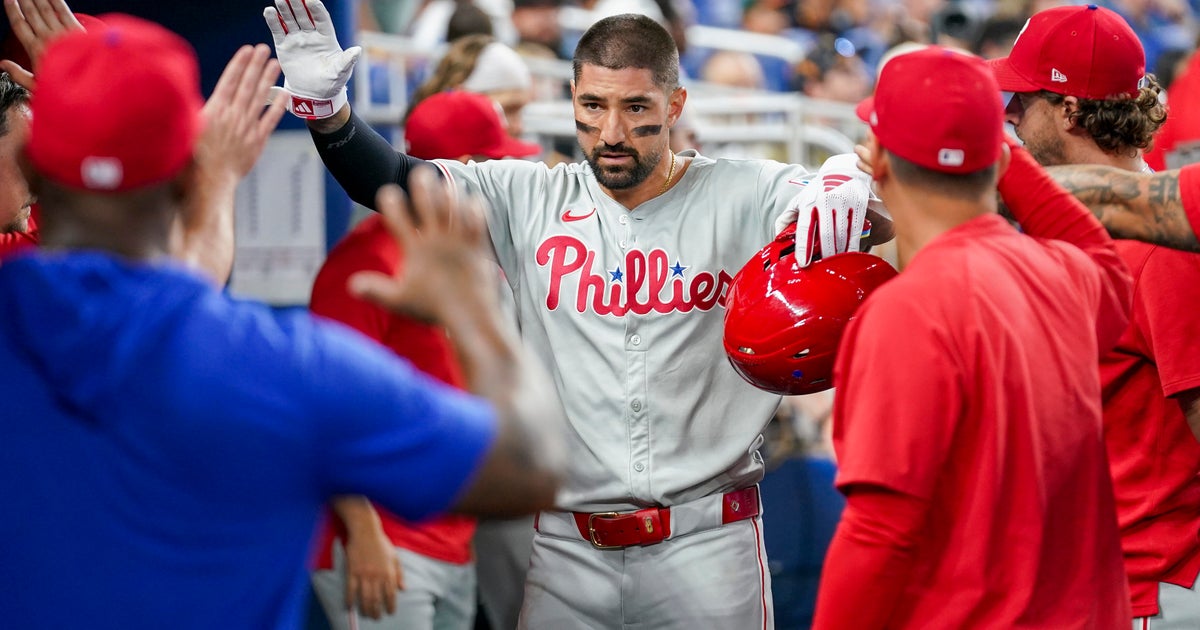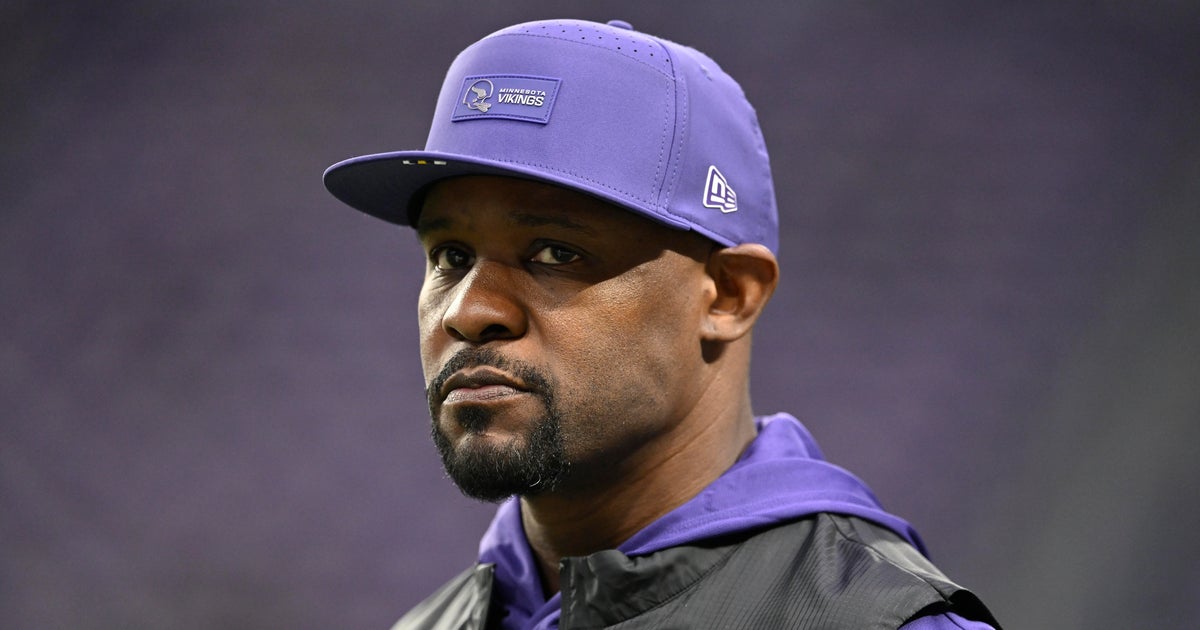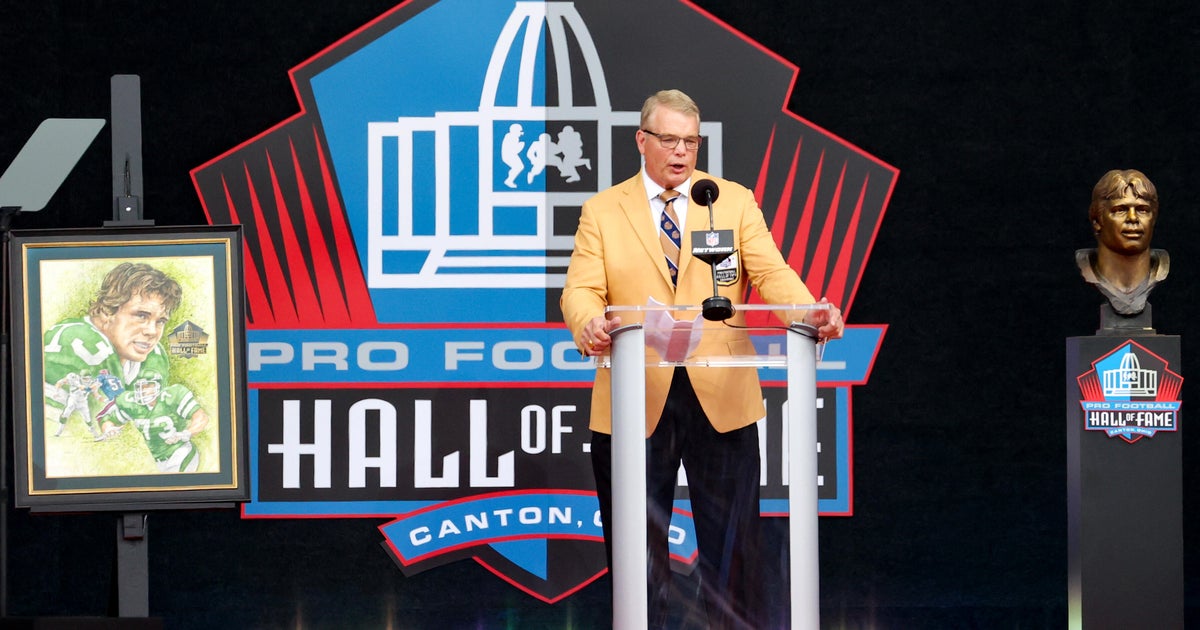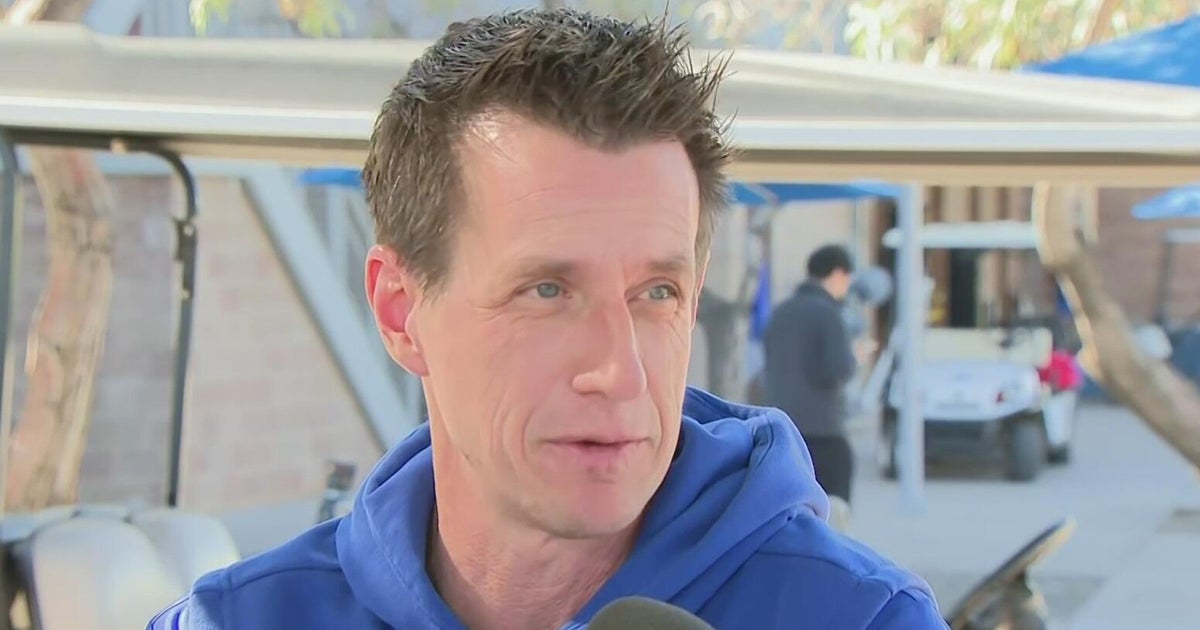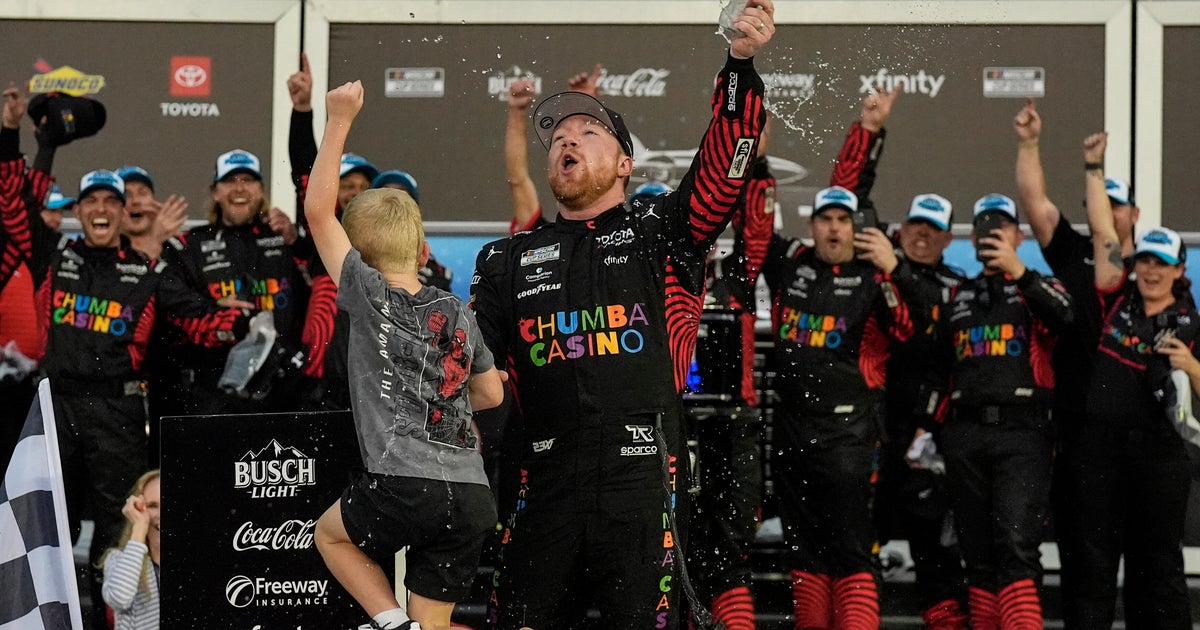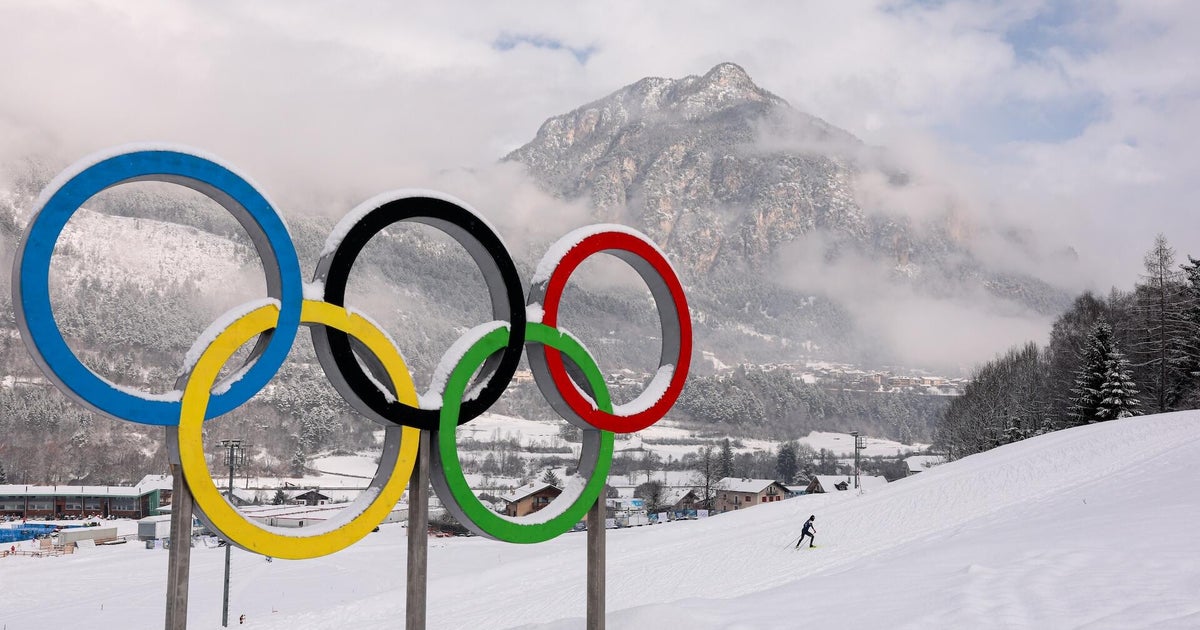Economy Could Take Hit With NFL Lockout
We all hope to enjoy football next season, but many people are hoping to keep their jobs. A lockout would affect more than just ruining many people's Sunday.
Beyond the rich players and even wealthier team owners arguing over how to divvy up $9 billion in revenue a year, the people who would suffer most if there's no NFL season this year are those whose jobs, businesses and even charity work depend on games.
It's the 2,500 ticket-takers, janitors and other game-day employees at the Superdome in New Orleans, and the suburban dry cleaner who washes all their uniforms.
It's the receptionists and accountants for the New York Jets, and the high school band booster club that sells burgers and beer at Carolina Panthers games.
It's the Episcopal church that sells parking spots for Tennessee Titans games, the hotel across the street from the stadium in Houston and the ticket broker who opened a store facing Cowboys Stadium.
And on and on it goes, across the communities of all 32 teams.
"It's like an earthquake - there's a ripple effect out to other people, other parts of the region," said James J. Cochran, co-author of "An Event Study of the Economic Impact of Professional Sport Franchises on Local U.S. Economies" and an associate professor in economics at Louisiana Tech. "You can't really assume the impact is limited to the area around the stadium. You feel the shock everywhere along the way. It may not be the same shaking as at the epicenter, but you feel it."
The NFL and the players union are talking with a federal mediator to work out a new collective bargaining agreement. If they don't have a deal by Friday afternoon, the owners could lock out the players or the NFLPA might decertify and take its fight to court. Either scenario would put the NFL on a path that might wipe out some or all the upcoming season.
To gauge the fiscal fallout of NFL games not being played, The Associated Press interviewed dozens of economists, business owners and team officials from across the country. Several themes emerged:
- Teams would be hit hard because they collect a lot of the money spent on game days (concessions, parking, souvenirs), especially in newer stadiums designed to maximize their haul.
Local tax districts would suffer, too, most of all in places where there are tariffs on tickets or parking spots to repay stadium costs. The way things are set up in Foxborough, Mass., revenue from the Patriots' stadium pays for big-ticket items such as school buses, school computers, highway trucks and fire engines. The town's capital budget - the line item that would be hit - already has been "starved out" for several years, skimping on all but the school buses, said Randy Scollins, Foxborough's finance director.
"We have a big backlog of items that deliver services to town," Scollins said. "This would only delay that more."
- With just eight home games per regular season, game days are only a part of a worker's income - extra hours or a second job for stadium types, a busy day at the office for the waiter at a nearby sports bar. However, it's still money they are counting on.
"The doomsday scenarios are exaggerated, but there will be innocent bystanders who are casualties of this," said John Vrooman, who teaches sports economics at Vanderbilt University. "The overall losses to these people are going to be small, but they're not small to them."
- Overall, local economies would not see money so much lost as spent elsewhere. Fans would look to entertain themselves some other way on Sunday afternoons.
"It's like a snowstorm," said Stephen Fuller, economist and director of George Mason University's Center for Regional Analysis. "The grocery store sells out, and the restaurants are closed. ... There's a redistribution effect."
No calculation exists for the total number of people who would be affected by an NFL work stoppage, though it's certainly enough to fill a few stadiums.
The NFLPA's estimates there are an average of 3,739 workers at each game, and that does not include jobs at places near the stadium that are at least partly dependent on games, such as bars, restaurants, hotels and gas stations.
How many dollars are connected to those people also is tough to determine. The figure thrown around most is $160 million per market over the regular season. It comes from the NFLPA, which arrived at that by using estimates teams relied on to win public funding for stadium construction.
Several economists - though not the league - have said those estimates are overblown and it's also worth noting the figures include player salaries.
Still, a work stoppage would "hurt the people who can afford it least," Cochran said. "Nobody is looking out for their concerns."
The 100 or so kids in the band at South Mecklenburg High School in Charlotte, N.C., also would lose out.
Their booster club has a budget of around $80,000 to pay for everything from travel expenses to customized music and drills. About one-fourth of that budget comes from running a concession stand at Panthers games. In their best season, they raked in nearly $26,000.
Last season wasn't as profitable, so the boosters already have scaled back. Taking away all their Panthers-generated dollars would cripple the program.
"The funding we have to travel would be gone," band director Chris Rugila said. "We'd probably go down to one, maybe two competitions. We'd have to cut programs or add fees to the students. ... I'm an NFL fan and I'd hate to see a lockout because I like to watch football on Sundays. But it's also really going to directly impact my life, my students' lives and my professional life. A lot of things I've tried to put in place are in jeopardy."
Todd Roser can relate.
His father started Roser's Fine Dry Cleaning and now he runs it. There's a single location, in Kenner, La., and about one-fourth of the business is tied to the New Orleans Saints. He not only cleans the uniforms of stadium employees, he also does personal valet dry cleaning for players. The dropoff would begin right away if there are no offseason workouts, minicamp and training camp to bring guys to town.
"I'd feel it, big-time," said Roser, who already is fretting the possibility of laying off employees.
The Jets aren't laying anyone off. But they are among the few teams announcing plans to trim their payroll.
Salaries for coaches and others on the football side could be chopped by 25 percent. On the business side, almost 100 workers will have to take a one-week, unpaid furlough every month until there's a deal. They can apply for unemployment during their time off and if no games are missed, owner Woody Johnson plans to reimburse them for lost income.
Dave Gibson wishes he had such a safety net.
Gibson is sales director for a Holiday Inn located one block from Reliant Stadium in Houston. Here is how heavily his hotel's bottom line is tied to the NFL: The food and drink tab on a typical weekend is $2,000; it's close to $12,000 on a weekend when the Texans are home. There's also a bump in occupancy. All 238 rooms were rented for both preseason games last year and they sold out for a Monday night game 1 1/2 months in advance, "which never happens," he said.
"If the season doesn't happen, you're looking at least $100,000-$120,000 out of our pocket. Gone. Irreplaceable," he said.
Then there's St. Ann's Episcopal Church in Nashville, Tenn.
The church collects $30,000 a year from cars parked on a parcel of land originally purchased for an eventual expansion. The money generated goes right into the mortgage, and leaders have earmarked reserve funds to make up for it this year, if necessary. Their fears about an NFL work stoppage are part financial, part spiritual.
"Our mission is not to park cars," said Ken Love, senior vestry warden. "Our mission is to feed the hungry and the homeless and to spread God's word and to be a witness to the city. ... Where I have a greater disappointment is we won't be there for the crowds of people that walk by on a Titans' Sunday. And it's just more sort of the chance to be that contact with people will be missed."
---
AP Sports Writers Brett Martel in New Orleans, Dennis Waszak in New York, Chris Duncan in Houston, Josh Dubow in Oakland, Janie McCauley in San Francisco, Arnie Stapleton and Pat Graham in Denver, Jon Krawczynski and Dave Campbell in Minneapolis, Teresa Walker in Nashville, Mike Marot in Indianapolis, Joe Kay in Cincinnati, Rob Maaddi in Philadelphia, Steve Wine in Miami, Bernie Wilson in San Diego, Larry Lage and Noah Trister in Detroit, Joseph White in Washington, Tom Canavan in New Jersey, Mark Long in Jacksonville, John Wawrow in Buffalo, Tim Booth in Seattle, Mike Cranston in Charlotte and Andrew Seligman in Chicago contributed.
© 2011 The Associated Press. All rights reserved. This material may not be published, broadcast, rewritten or redistributed. Learn more about our Privacy Policy and Terms of Use.

